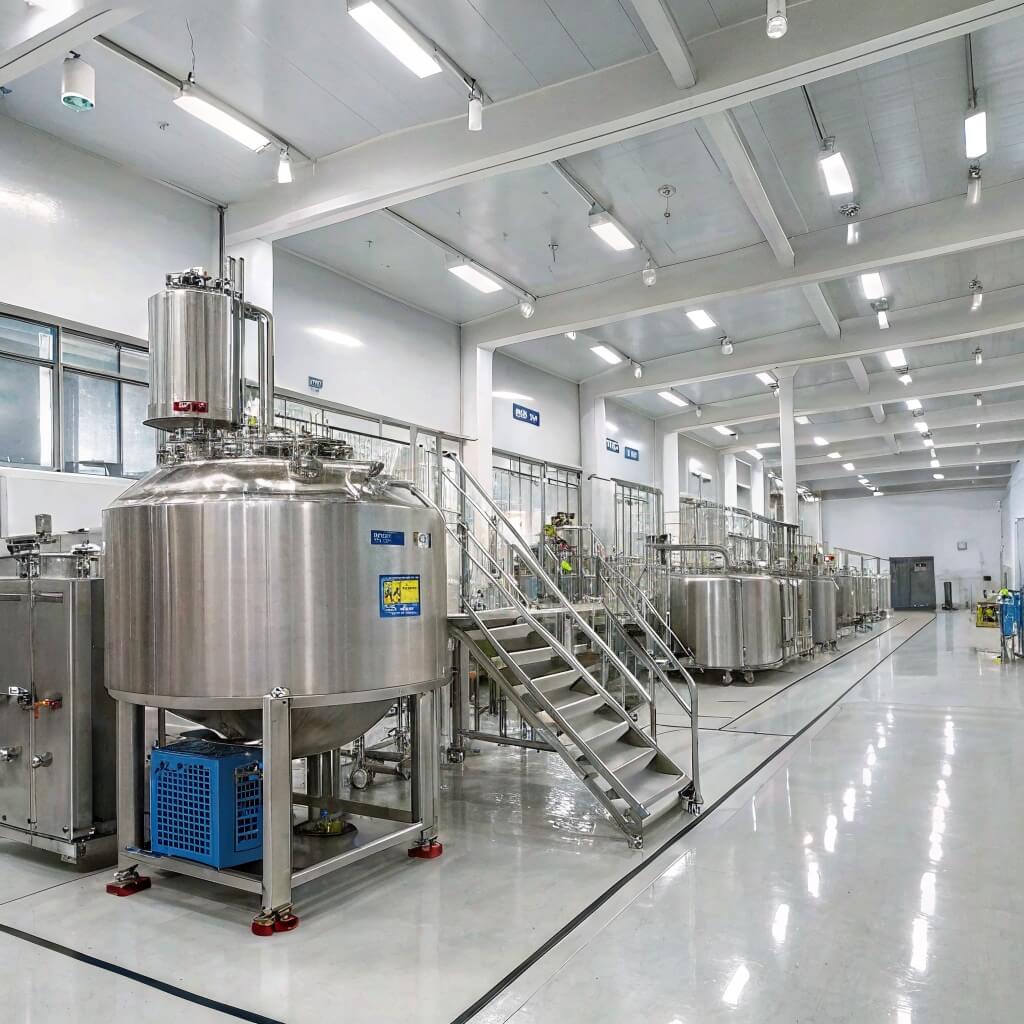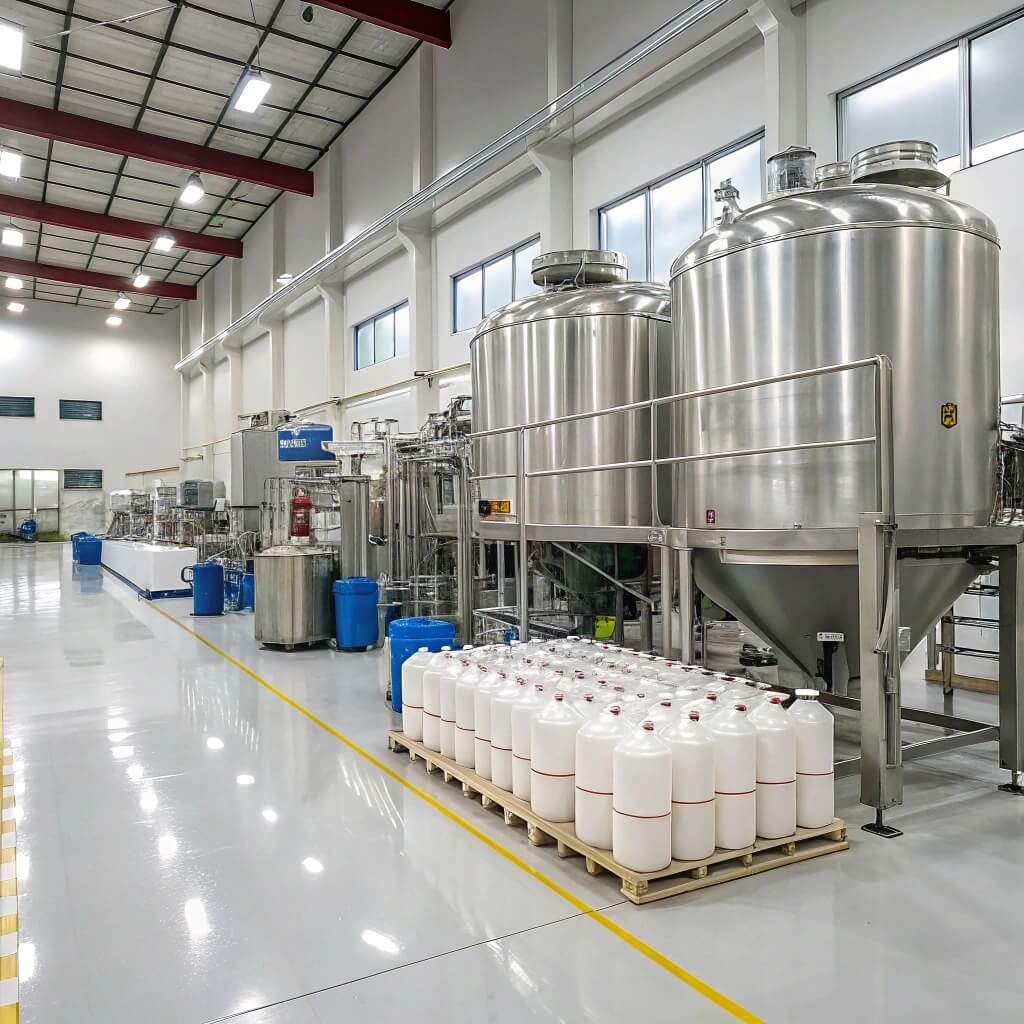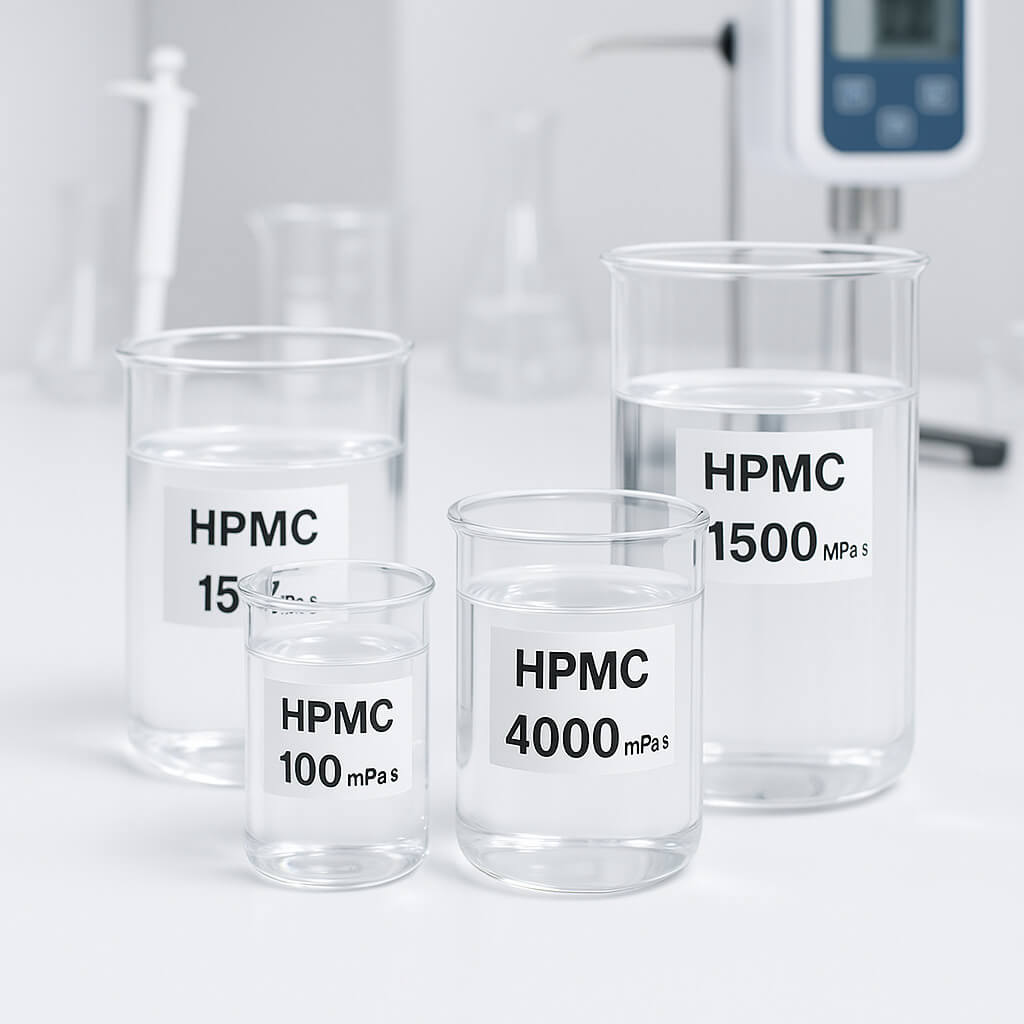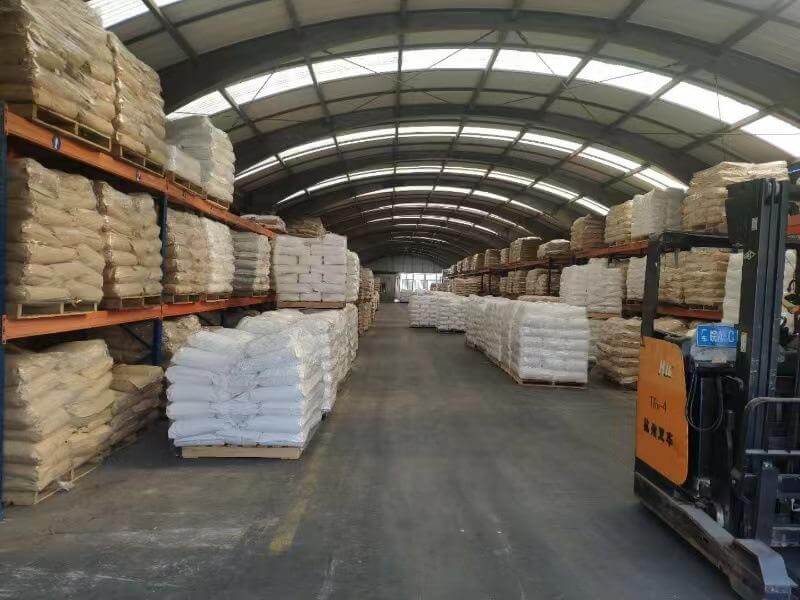Finding the right HPMC supplier can be a minefield of broken promises, quality issues, and delivery headaches that cost your business time and money.
A reliable HPMC manufacturer must demonstrate consistent quality through proper certifications, maintain sufficient production capacity for uninterrupted supply, provide responsive technical support, offer reasonable pricing without hidden costs, and have a proven track record with verifiable customer references.
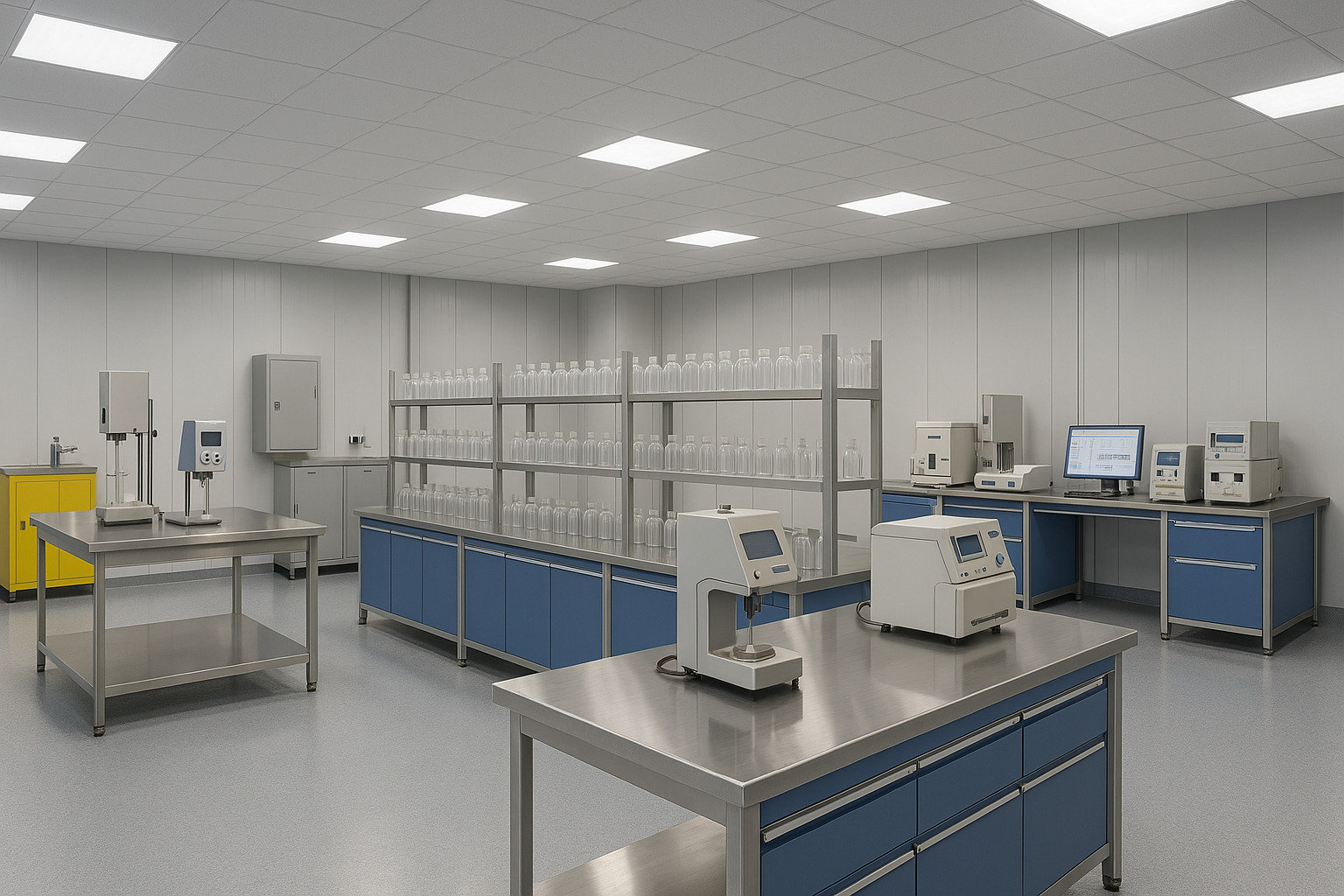
A modern quality control laboratory in an HPMC manufacturing facility showing scientists using advanced testing equipment to verify product specifications and consistency.
Let’s look at how to evaluate and select a dependable HPMC partner for your business needs.
What are the key factors to consider when evaluating HPMC manufacturers?
Many buyers rush into supplier relationships based on price alone, only to face quality problems, delivery delays, and technical incompatibility later.
When evaluating HPMC manufacturers, focus on production capacity and stability, quality certifications relevant to your industry, technical support capabilities, customization flexibility, supply chain reliability, and transparent pricing without hidden costs.
Start by assessing the manufacturer’s production capacity. A manufacturer producing at least 10,000 tons annually typically has the scale necessary for consistent quality and competitive pricing. Ask about dedicated capacity for your specific HPMC grade for a more accurate picture of supply security.
Quality certifications provide verification of manufacturing standards based on your application:
• Construction: ISO 9001 certification
• Pharmaceutical: GMP compliance, FDA registration, USP conformance
• Food: FSSC 22000, Kosher certification
Technical support capability distinguishes valuable partners from mere suppliers. We’ve found manufacturers with strong technical teams help solve problems beyond the HPMC itself, adding significant value.
| Evaluation Factor | Questions to Ask | Importance |
|---|---|---|
| Production Capacity | Annual volume, expansion plans | High |
| Quality Certification | Industry-specific standards | High |
| Technical Support | Application expertise | Medium |
| Supply Reliability | Delivery history | High |
Reference checks with existing customers offer valuable insights. Request references from clients in your industry and ask about supply reliability, quality consistency, and problem resolution.
How does the supplier’s manufacturing capability impact product consistency?
Your customers blame your products when they fail, never suspecting that inconsistent HPMC might be the hidden culprit behind shifting performance.
A supplier’s manufacturing capability directly affects HPMC consistency through raw material selection, reaction process control, quality testing, and production scale that enables detecting variations before they reach customers.
The production process for HPMC involves critical stages requiring precise control:
Raw Material Management
Cellulose quality significantly impacts final product characteristics. We test each cellulose batch for molecular weight, purity, and fiber characteristics before acceptance to prevent downstream issues.
The quality of propylene oxide and methyl chloride influences substitution pattern and degree. Established manufacturers maintain strict specifications for all incoming chemicals.
Reaction Process Control
The etherification reaction must occur under controlled conditions to achieve consistent substitution patterns. Advanced manufacturers employ automated systems monitoring:
• Temperature profiles
• Reagent addition rates
• Reaction time parameters
• Alkalinity levels
Our facilities use distributed control systems maintaining parameters within tight tolerances for batch-to-batch consistency.
Quality Testing
Leading manufacturers test not just final products but implement in-process controls at multiple stages. This allows early detection of deviations before they affect finished products.
Our large-scale continuous production lines enable statistical process control that identifies trends before they cause specification deviations – a proactive approach maintaining tighter consistency than reactive quality control.
What quality assurance practices distinguish a dependable HPMC supplier?
Many HPMC buyers face product rejections, customer complaints, and regulatory issues due to inadequate supplier quality systems.
Dependable HPMC suppliers implement comprehensive quality systems including robust documentation with batch traceability, regular audits, stability monitoring, advanced analytical capabilities, and established non-conformance procedures.
Quality assurance extends beyond basic testing to a systematic approach managing all production aspects affecting quality.
Documentation Systems
Reputable manufacturers maintain documentation tracing quality issues back to production conditions, raw materials, or equipment states. Our system maintains complete batch genealogy from raw material receipt through shipping, with unique identifiers linking all documentation.
Audit Programs
Regular internal audits and willingness to host customer audits distinguish quality-focused suppliers. Leading manufacturers participate in third-party certification programs relevant to their target industries.
Analytical Capabilities
The depth of testing reflects a supplier’s commitment. Our laboratories employ multiple testing methods for each critical parameter, providing verification that simple tests cannot deliver.
| Quality Element | Best Practice | Warning Sign |
|---|---|---|
| Documentation | Electronic batch records | Paper-only systems |
| Audits | Regular evaluations | Resistance to customers |
| Testing | Multiple methods | Basic testing only |
Non-Conformance Procedures
How a supplier handles quality deviations reveals their quality commitment. Dependable manufacturers implement formal systems for investigating root causes and implementing corrective actions. When evaluating suppliers, request examples of past quality issue handling.
Why is technical support and customization crucial in long-term partnerships?
Many companies select suppliers based solely on specifications and price, then struggle with application challenges the right partner could easily solve.
Technical support and customization capabilities transform a basic supplier relationship into a strategic partnership enhancing your product development and manufacturing.
Application-Specific Expertise
Technical support begins with understanding how HPMC functions in specific applications. Our teams include specialists with relevant industry experience who understand challenges from the customer’s perspective.
Formulation Assistance
Beyond standard product selection, advanced technical support includes formulation assistance maximizing HPMC performance. Our laboratories conduct application-specific testing simulating client manufacturing processes. For construction customers, this includes preparing actual mortar samples to evaluate open time and adhesion strength.
Customization Flexibility
Standard catalog grades cannot address all needs. Effective customization requires:
• Understanding which parameters affect your application
• Process flexibility to adjust those parameters
• Scale-up capability from laboratory to production
• Consistency in delivering customized specifications
| Customization Parameter | Construction Impact | Pharmaceutical Impact |
|---|---|---|
| Viscosity | Water retention | Gel formation |
| Substitution Degree | Cement compatibility | Dissolution behavior |
| Particle Size | Dissolution rate | Content uniformity |
We’ve developed specialized grades for unique requirements, delivering significant performance advantages over standard options.
How can you validate the trustworthiness of a HPMC supplier in China?
Many importers waste time on unreliable Chinese suppliers who misrepresent capabilities, leading to quality issues and business disruptions.
To validate a Chinese HPMC supplier, verify business registration, conduct thorough factory inspection, check certification authenticity, request detailed references, and start with trial orders.
China has emerged as the world’s largest HPMC manufacturing base, but quality varies significantly among suppliers. As a Chinese manufacturer, we understand both the strengths of Chinese production and buyers’ legitimate concerns.
Business Verification
Request and verify:
• Business license with registered capital
• Export license
• Tax registrations
• Industry association memberships
Factory Inspection
During visits, verify:
• Actual production equipment
• Laboratory facilities
• Warehouse conditions
• Staff expertise
Note equipment automation levels as these impact consistency. Our facility welcomes customer tours of all production areas.
Certification Verification
Verify critical certifications through direct checks with certification bodies and confirm that your specific HPMC grades are included in certification scope.
Trial Orders
Before committing to large volumes, conduct trials spanning multiple production batches. Test performance in your actual applications. These trials provide real-world validation that documentation alone cannot provide.
What are the risks of choosing low-price HPMC manufacturers?
The temptation of rock-bottom prices often blinds buyers to hidden costs that ultimately make "cheap" suppliers the most expensive option.
Choosing low-price HPMC manufacturers typically leads to inconsistent quality, supply unreliability, limited technical support, hidden costs, and potential regulatory non-compliance.
Quality Inconsistency
Low-priced manufacturers typically achieve those prices by:
• Using variable raw materials
• Operating simpler equipment
• Reducing testing
• Minimizing process optimization
The business impact extends beyond the HPMC cost to formulation failures, product returns, reputation damage, and production delays.
Supply Reliability Challenges
Low-price manufacturers often operate with minimal inventory, reducing flexibility for demand fluctuations or disruptions. Our production planning maintains strategic inventory levels providing buffer against supply chain disruptions.
Technical Support Limitations
The technical support gap forces customers to develop in-house expertise or engage consultants at significant cost. This particularly affects specialized applications and new product development.
Hidden Cost Factors
A comprehensive comparison should include:
• Rejection rates requiring larger orders
• Additional quality testing
• Processing to compensate for variables
• Documentation deficiencies
• Communication challenges
This analysis often reveals that moderately higher-priced suppliers deliver lower total costs through consistency, reliable supply, and technical support.
FAQs
Who is the manufacturer of HPMC?
HPMC is manufactured by numerous companies globally. Major producers include Dow Chemical and Ashland in North America, Morton and several large manufacturers in China, Shin-Etsu in Japan, and various producers in India and Europe. Each manufacturer offers different grades for various applications like construction materials, pharmaceuticals, and food products.
What are the different grades of HPMC?
HPMC grades vary in viscosity, substitution degree, and particle size. Construction grades typically range from 5,000-200,000 mPa·s with optimized water retention. Pharmaceutical grades follow USP/EP standards with specific substitution patterns (2208, 2906, 2910) for different release profiles. Food grades comply with E464 specifications with controlled gelling temperatures.
How do you test for HPMC?
HPMC testing typically includes viscosity measurement, substitution degree analysis, particle size distribution testing, gel temperature determination, moisture content analysis, and application-specific performance tests. For regulated applications, additional testing includes heavy metals, residual solvents, and microbiological testing.
What are the disadvantages of HPMC?
HPMC limitations include thermal gelation at high temperatures (limiting hot processing), sensitivity to oxidizing agents, potential delayed cement hydration if overdosed, higher cost compared to alternatives like MC or CMC, and batch variations if sourced from manufacturers with inadequate quality controls. Most limitations can be managed through proper grade selection and formulation.
Conclusion
Selecting a reliable HPMC manufacturer impacts your product quality, efficiency, and market success. The evaluation should extend beyond price to include quality systems, manufacturing capabilities, technical support, and supply reliability.
Chinese manufacturers now dominate global HPMC production, offering competitive options across applications. However, thorough validation remains essential through factory inspection, certification verification, reference checks, and trial orders.
Understanding total cost impact helps prevent false economies. Quality consistency, reliability, and technical support often deliver value exceeding their cost premium. Contact Morton today to discuss your HPMC requirements and experience how a reliable manufacturing partner enhances your product performance.

